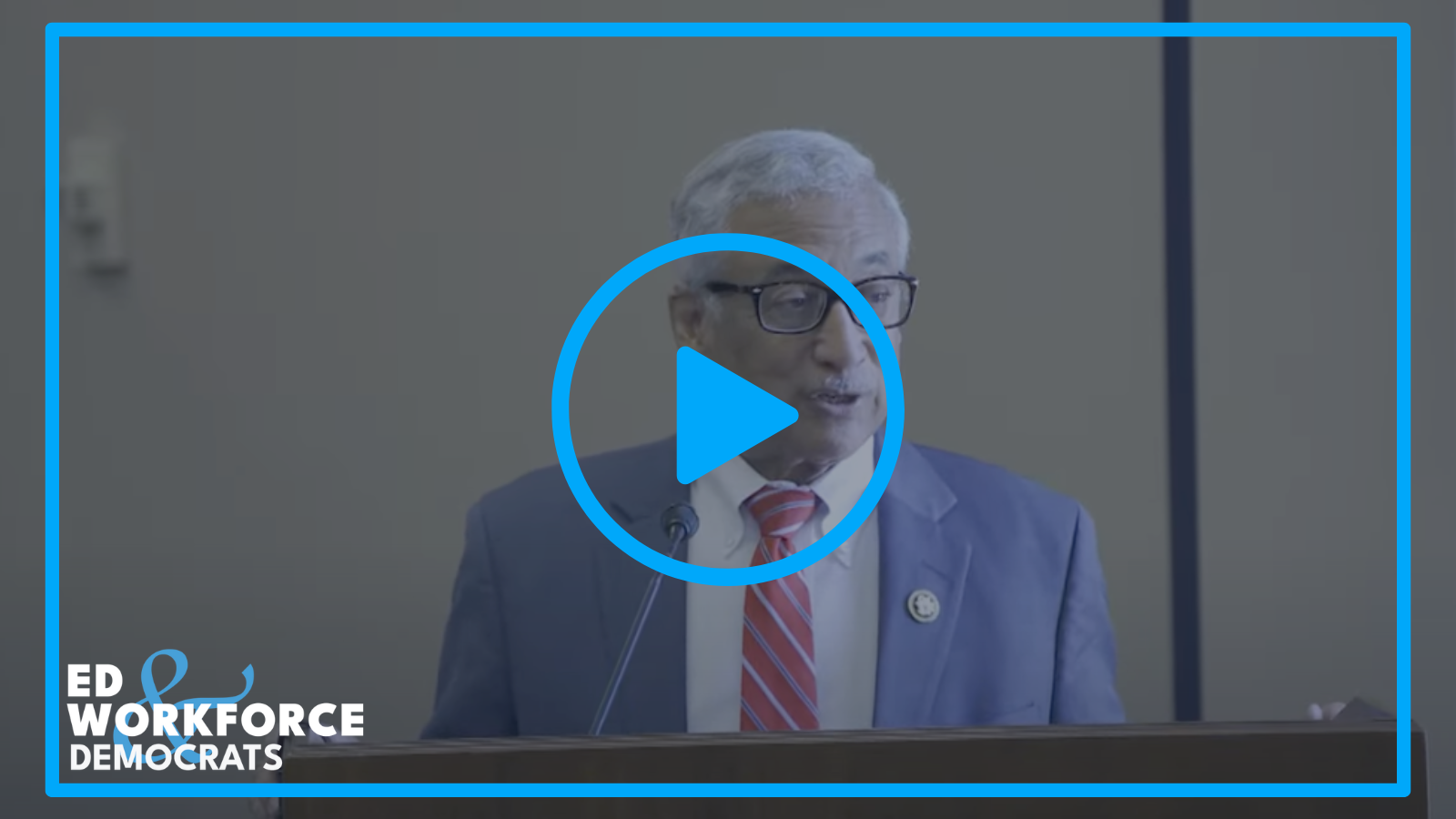ICYMI: On One Year Anniversary of SCOTUS Affirmative Action Decision, Ranking Member Scott Sets the Record Straight
“The Supreme Court’s decision is a significant setback in the effort to eliminate disparities in access to higher education and to ensure diverse learning environments for all students.”
WASHINGTON – Yesterday, Ranking Member Robert C. “Bobby” Scott (VA-03) hosted a briefing with Attorney Marc Minor, Vice Chair of Racial & Ethnic Diversity for his firm’s Diversity, Equity, and Inclusion Initiative, to set the record straight on the Supreme Court’s affirmative action ruling in Students for Fair Admissions v. Harvard and Students for Fair Admissions v. UNC, and the implications on areas outside of higher education.
Watch Ranking Member Scott’s remarks on YouTube.
Ranking Member Scott delivered the following remarks during the briefing:
“Today, we are here to set the record straight on the Supreme Court’s affirmative action ruling in Students for Fair Admissions v. Harvard and Students for Fair Admissions v. UNC, or otherwise known as the SFA decision.
“These two cases were brought before the Supreme Court by Ed Blum, a noted voting rights and civil rights opponent. He persuaded the Supreme Court’s conservative majority to overturn 45 years of legal precedents that colleges and universities may consider race as one of many factors in their admissions process.
“The Supreme Court had long held that our nation has a compelling interest in fostering racially diverse campuses.
“Holistic college admissions practices that narrowly tailor the use of race as one of many factors in evaluating prospective students were key to fostering such diversity in higher education. Research confirms that such admissions policies supported historically underserved students and contributed to diverse campuses that also provide all students with a quality, well-rounded education.
“A year ago this week, the Supreme Court decided, with little regard for its own precedents or the real-world consequences, that Harvard’s and UNC’s pursuit of these compelling interests were unconstitutional.
“The Supreme Court’s decision is a significant setback in the effort to eliminate disparities in access to higher education and to ensure diverse learning environments for all students.
“Worse, since the Supreme Court announced its decision to limit the consideration of race in college admission programs, opponents to civil rights and equal opportunity have extended the case’s rationale in areas of employment, contracting, outreach and recruiting, among others.
“We have witnessed State Attorney Generals threatening corporations that have diversity and inclusionary programs; lower Courts invalidate private grants to close glaring racial gaps in business financing and 8A set-aside small business programs; and attacks on black farmers seeking recovery from an institution with a longstanding record of institutional racism in the Department of Agriculture.
“Also, we have seen nationwide attacks on colleges and corporations’ diversity, equity, and inclusion programs, better known as DEI.
“Justice Sotomayor said it best in her dissent: “Ignoring race will not equalize a society that is racially unequal. What was true in the 1860s, and again in 1954, is true today: Equality requires acknowledgment of inequality.”
“Race-conscious admissions policies provided a counterbalance to factors that disparately impact students of color and students from poorer school districts—such as inequitably funded K-12 schools, racially biased admissions tests, and developmental and legacy admissions.
“All of those have disparate impacts but you’ve got affirmative action on the other side. No harm no foul.
“Once you get rid of affirmative action, all you’re left with is a bunch of factors, most of which have racially disparate impacts.
“In Congress, I am continuing to champion the Equity and Inclusion Enforcement Act, which—among other things—restores the private right of action for students and parents to bring disparate impact claims under Title VI.
“Students and parents deserve nothing less than the right to hold schools and federally funded programs accountable for providing all students with equal access to a quality education.
“I look forward to today’s conversation about what can be done to reverse these inequities and ensure that public education – just as Justice Warren wrote 70 years ago in Brown v. Board of Education, that an opportunity of an education is a right— is made available to all on equal terms.
“Similarly, I look forward to our expert today dispelling the myths that have spread since the SFA decision was announced last June. Namely, that affirmative action is illegal and that there are no longer any recourses to pursue equal educational and employment opportunities.”
###
Press Contact
Democratic Press Office, 202-226-0853
Next Article Previous Article

